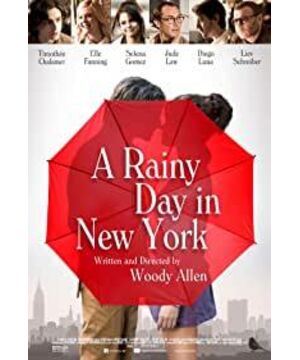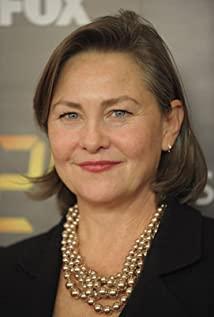The article was first published on the public account [Duanmu Xu]
After experiencing the baptism of three disastrous domestic romance films on Valentine's Day, two foreign romance films were released one after another, Japan's "Love Like a Bouquet" and the American "A Rainy Day in New York", as if to give The domestic directors demonstrate how to shoot a romantic movie, and they are also reminding the audience what kind of romantic movie they should choose to watch.
"Love Like a Bouquet" and "A Rainy Day in New York" are actually similar in terms of the content of the stories expressed in the films, and they both tell stories about " co -production".
In "Bouquet", Mai and Juan met and fell in love with each other because of their hobbies in life, and they finally broke up because of the pressure of reality that caused the two to appear at different frequencies.
In "New York", Gatsby, who is full of literature and art, and Ashley, who has great career ambitions, are lovers, but their three views are not the same. In the end, Gatsby finally realized that he and Ashley were not the same, and resolutely let go, and chose At six o'clock in the evening, he went to wait for his like-minded girl, Akane, under the musical clock in Central Park.
Similar stories, the former is a tragedy (a bad ending for the two protagonists), and the latter is a comedy.
One reason is that the two films are produced by different directors from different countries, and the environment determines the ending of the film .
"Love Like a Bouquet" already reflects the Japanese aesthetics of " Sorrowful " from the title of the film . Love will eventually wither like a bouquet, but there are always some moments that are as beautiful as a bouquet, so the ending is Tragedy is an empty field and joy is predictable; and "A Rainy Day in New York" was written by the famous American director Woody Allen. His film is synonymous with romantic comedy , and you don't need to make more guesses to know the film. type style.
But the fundamental reason that determines the different directions of the two stories is that the protagonists of the film are in different classes . Mai is proletarian, while Gatsby is bourgeois.
Mai was a literary youth in school. He could rely on the 50,000 yen living allowance given by his father every month and by doing odd jobs by himself. However, as soon as he entered the society, when Mai realized that drawing illustrations could not support his father after he stopped giving living expenses. When I was on my own, I could only choose to work part-time to earn money, otherwise I would have to go back to my hometown to make fireworks with my father. When a person switches from a student state to a work state, it is very difficult to go back. Life is full of complicated and trivial things, and I can’t read any more. Entering the new work of the author he liked before, Mai became a proletarian laborer who worked hard for capital.
But in exchange for such exhausting work, Juan doesn't understand, but after thinking about it, I can understand why Juan feels that opening and closing is because Qian Mai is annoying, and the concept of love does not match. Mai cares about herself before and after. The second is the difference in the degree of the two, and the third is the difference in the class they are in.
In fact, Juan's family is also considered a petty bourgeoisie. Her parents are advertisers who can cooperate with the Olympic Games. The family is a small villa. At first, she was looking for a job just to cope with her mother's nagging. It's easy to change because of dislike, Juan doesn't have actual financial pressure, but Mai does.
The beauty of love in student days is that you only need to think about how to be better for him/her in front of you, without thinking about other things. And once this kind of love is exposed in the society, the pressure from all sides will force both parties to spend some time and energy to resist these pressures, and the love given to each other will not always grow linearly as before, but may become The curve grows slowly, but in the eyes of the other party, it is lower than the previous standard, so it becomes a sentence in the other party's mouth, "Don't you love me?". This situation is most vividly reflected in the proletarian wage earner Mai, who also wants to love Juan more, but the reality does not allow it.
In my last article on "Bouquet", there was a sentence "Romantic love cannot survive under the shroud of capitalism", perhaps a precondition must be added, " Romantic love cannot survive under the shroud of capitalism. , unless they have money. ”
So Gatsby doesn't have the worldly troubles of Mai.
Gatsby may appear to be idle, disgusted with the mundane, reluctant to attend the autumn parties held by his parents, and even less willing to pay attention to the celebrities, but in fact he is the proud son of the bourgeoisie. He is acquainted with all kinds of literature and art, and looks at all the people and things in the society. He plays the piano well, sings songs well, and is sensitive to money. He can win 51,000 by casually playing horses and poker. U.S. dollars, a proper kid of the bourgeoisie.
On the other hand, Ashley, although the family is rich, is full of the taste of a rural nouveau riche, and her vision and words and deeds have not risen a ladder with the accumulation of family wealth. It can be said that their family's wealth has reached the threshold of the bourgeoisie, but there is still a certain gap in the education and cultivation of the next generation.
The little reporter who kept saying that he wanted to write a good article, lost himself under the praise and praise of a few middle-aged men, thinking that he had stepped into the film and television circle, but in fact it was just their current plaything, the talk after dinner, in the next young man. After the beautiful "reporter" comes in, her name will also be forgotten.
Gatsby's incompatibility with Ashley is revealed from the beginning of the film. Ashley didn't listen to Gatsby's introduction to her weekend plans, but was excited about the upcoming interview with the big director. When it came to going to Manhattan, Ashley said that she had been there twice when she was a child, because her parents bought it. Gatsby had an embarrassed but polite smile on his face, knowing that they were fakes.
The difference in living environment determines the difference in their vision. The vision can still be expanded through subsequent changes in the environment, but the three perspectives cannot be forced.
Gatsby likes to walk in the rain and roam Central Park in a wagon, Ashley thinks he has a bit of Asperger's Syndrome, Gatsby hums jazz lyrics, Ashley pretends to think it is Shakespeare's lines. The difference in concept between the two is very huge, and this incompatibility in concept determines their ending, so Gatsby finally chose to watch the musical "Hamilton" who also likes to watch, and also thinks walking in the rain is romantic. .
Some circles cannot be forcibly integrated into. Ashley represents the " upstarts " who try to integrate into the bourgeoisie. Gatsby represents the goalkeeper of the bourgeoisie. Although Ashley won the court due to the efforts of her parents Qualified to play games, but because of the lack of personal ability and the overall level of the team on the field, the goalkeeper is always blocked from the goal, and it is difficult to score goals to open the door of the bourgeoisie.
There is some truth to the old saying that the right family is right. It can prevent the communication between people of different classes to a certain extent. Since the result will be incompatible with each other, it is a good ending to separate the two at the beginning.
What is interesting is that the film does not explicitly tell about the inability of Gatsby and Ashley to integrate into the circles. On the contrary, the film has been making self-deprecating and belittling the bourgeoisie in Gatsby's tone, while outsiders have been praising and praising it. Ashley's excellence raises Ashley's identity, but this elevation is inconsistent with Ashley's own vision and behavior, forming a huge contrast, in fact, secretly mocking Ashley and others Those who really want to integrate into the bourgeois circles, but the class has walls and the circles are different .
From "Bouquet" to "New York", from the proletariat to the petty bourgeoisie to the nouveau riche to the bourgeoisie, we can clearly see that different classes have different influences on the protagonists' views on love, which also causes them to have different endings .
above.
View more about A Rainy Day in New York reviews











